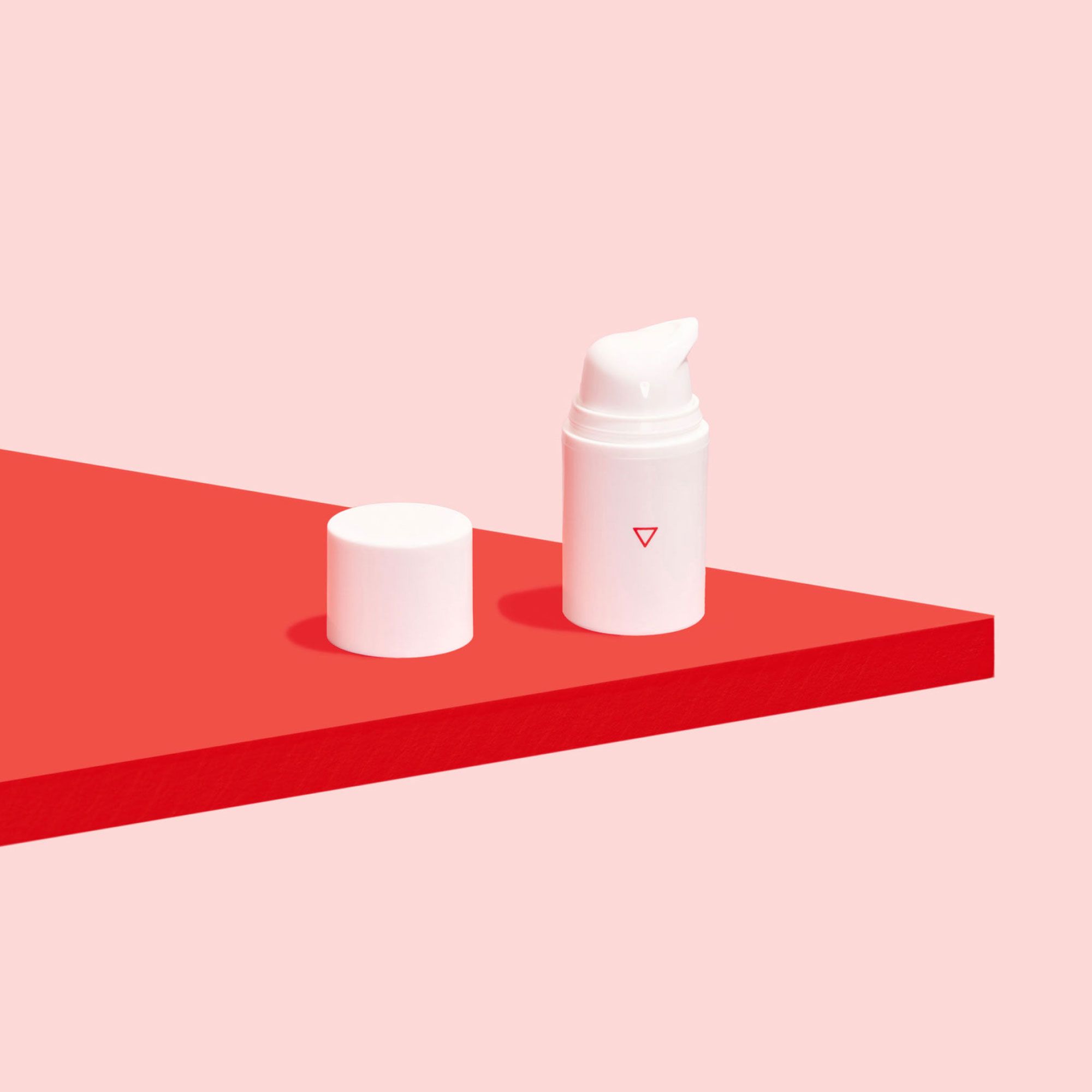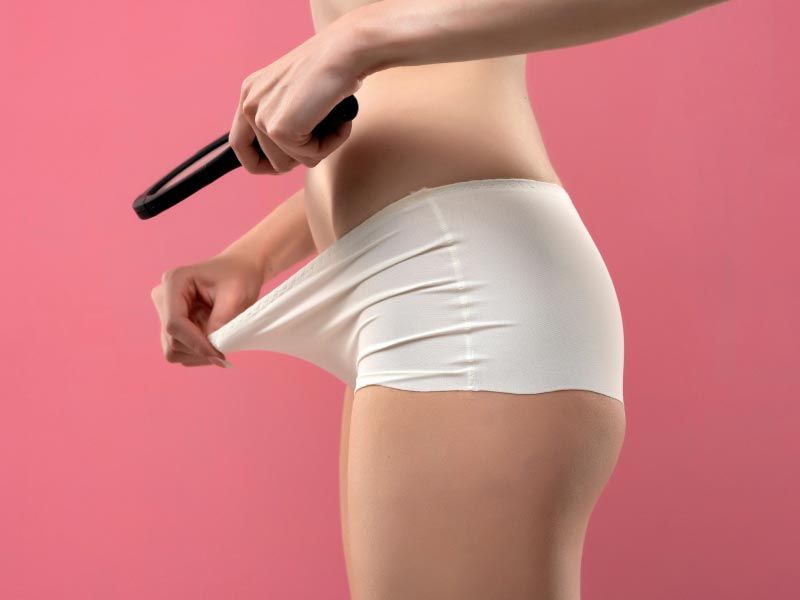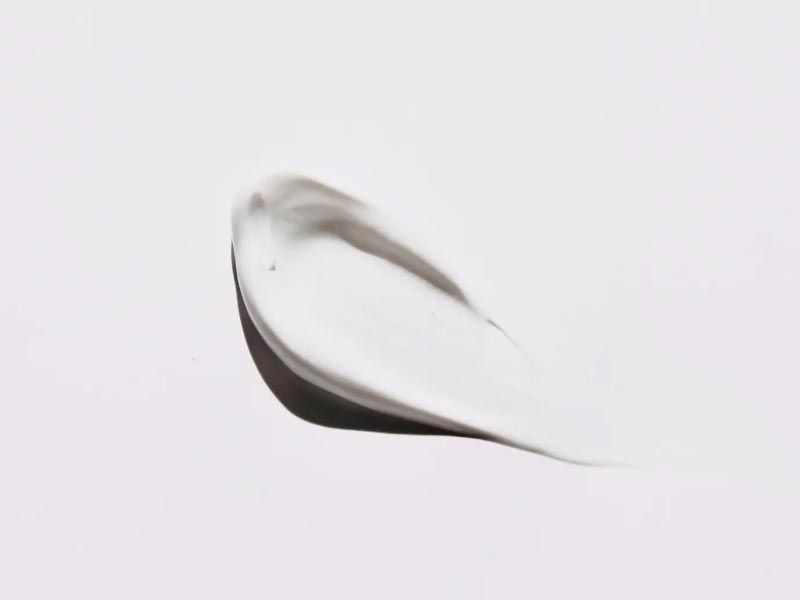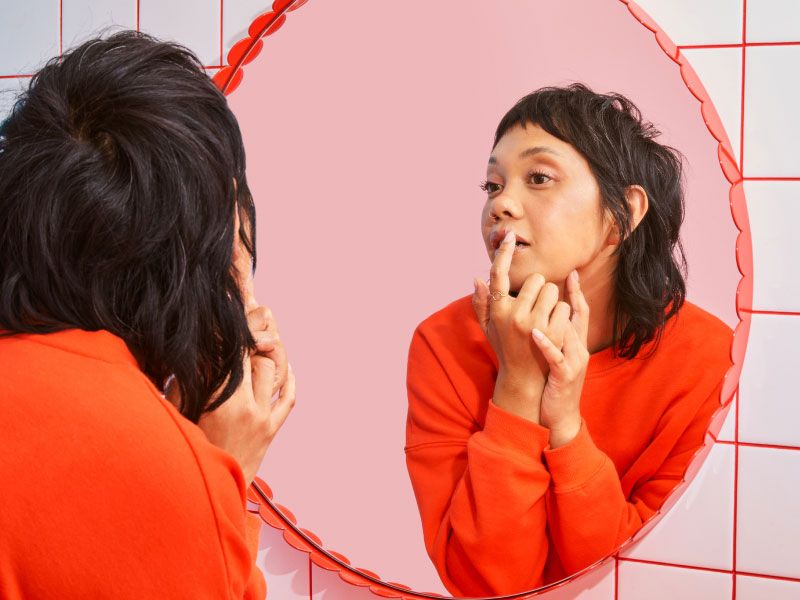
How to Kill Cold Sores Instantly
Published on April 29, 2022
Updated on February 18, 2025
Written by Kathleen Morrison
Medically Reviewed by Andrea Sleeth WHNP-BC, MSCP
Cold sores (or fever blisters) can be uncomfortable, frustrating, and sometimes even take a hit to your confidence.
These tiny blisters tend to pop up when your immune system is under stress, but the good news? You don’t have to wait them out. With the right treatment, you can stop a cold sore in its tracks and speed up healing.
So, what kills cold sores instantly? Unfortunately, nothing can vanish these bad boys away in an instant, but there are ways to feel instant relief and get the healing process underway super fast.
Prescription Antiviral Medications
When it comes to knocking out cold sores fast, prescription antivirals are your best bet. Prescription medications like acyclovir and valacyclovir work by stopping the herpes simplex virus from multiplying, cutting down the length of an outbreak.
The key is to start treatment at the very first sign—like tingling, itching, or redness—to reduce healing time by several days. If you experience frequent or severe outbreaks, a daily prescription antiviral can also help prevent future flare-ups.
Prescription antivirals come in oral and topical forms, so you can choose what works best for you. Oral medications tend to be more effective because they fight the virus from within, while topical creams target the sore directly. Either way, starting treatment early makes all the difference.
While medication is a game-changer, supporting your immune system is just as important. Getting enough sleep, managing stress, and eating a balanced diet can help your body fight off outbreaks before they even start. If a cold sore does appear, combining strong antiviral therapy with simple self-care can help you heal faster and keep future flare-ups at bay.
The bottom line? Quick action is everything. Don’t wait for a cold sore to fully develop—starting treatment early leads to a faster recovery and less discomfort.
Over-the-counter Topical Treatments
OTC topicals are a convenient way to get rid of cold sores as soon as they appear. One popular ingredient is docosanol which may shorten the duration of an outbreak if applied at the first sign of a tingle.
These creams help stop the virus in its tracks, keeping it from spreading further on your skin. Other products, like cooling gels with anesthetics such as benzocaine, can also reduce pain and discomfort.
Timing is everything with OTC treatments. The earlier you apply them, the more effective they are. Once the cold sore fully develops, these products may not be as powerful, but continuing to use them can still ease irritation. Another helpful option is cold sore patches, which form a protective barrier over the sore, lowering friction and reducing the risk of spreading the virus to others.
Before using any product, always check the instructions, especially for creams designed for specific areas (like the lips, not inside the mouth). If OTC treatments don’t seem to help, or if cold sores are recurring, it might be time to consult a healthcare provider for prescription options. Pairing OTC treatments with gentle skincare (like a mild facial cleanser) can also help keep the area clean and promote healing.
Oral Pain Relievers
While oral pain relievers won’t heal cold sores, they can make living with a cold sore much more comfortable. Medications like ibuprofen or acetaminophen work to reduce pain, swelling, and tenderness so you can eat, talk, and smile with less discomfort.
Ibuprofen is especially helpful for reducing inflammation, while acetaminophen tends to be gentler on the stomach. No matter which option you choose, make sure to follow the recommended dosage to avoid overuse. These medications work well alongside other treatments, such as antiviral creams or prescriptions, to reduce the pain and discomfort in the early stages of an outbreak.
Keeping pain relievers on hand is a smart idea for anyone who’s prone to cold sores. While they won’t make the sore go away faster, they’ll help you get through the day more easily, allowing you to focus on other treatments.
Topical Pain Relievers
If you're looking to manage some of the pain, topical pain relievers can also offer quick comfort. Products like prescription lidocaine cold sore cream are often found in over-the-counter gels or creams designed to numb the affected area and reduce discomfort. These numbing agents help dull the pain, making it easier to go about your day without being distracted by the irritation.
Like other treatments, the key is to apply them at the right time. These topical pain relievers can be especially helpful in the early stages of an outbreak, giving you some immediate relief while other treatments work to stop the virus from spreading. Just be sure to follow the product instructions carefully and avoid using them too frequently, since overuse could cause irritation or sensitivity.
While these creams won’t heal the cold sore itself, they can be an effective part of a broader strategy, especially when combined with antiviral medications and other soothing treatments. They help ease the pain, so you can focus on what really matters—getting rid of the cold sore faster.
Cold Compresses
A cold compress can work wonders for reducing swelling and soothing pain. The cold helps constrict blood vessels, which can provide relief from the throbbing sensation around the lips or mouth. Even a chilled cloth can make a difference, especially during the first few days of an outbreak.
To try this, just wrap some ice cubes in a clean cloth or use a gel pack from the freezer. Gently hold it to the cold sore for about ten minutes at a time. Take short breaks between sessions to avoid skin irritation, and make sure to wash the cloth afterward to avoid spreading the virus.
Some people find it helpful to follow up with a moisturizing lip balm (like one with aloe) after using a cold compress. This helps keep the skin soft to avoid cracking, which can make the pain worse. While cold therapy won’t stop the virus, it can make the cold sore symptoms much more bearable and help the sore heal faster when combined with other treatments.
Integrating Self-care Into Your Healing Process
Whether you’re using OTC treatments, pain relievers, or cold compresses, it’s important to stay on top of your self-care. Drinking plenty of water, eating nutritious meals, and getting enough sleep can all support your body’s healing process. Keeping the affected area clean and using clean hands or cotton swabs to apply products will also reduce the risk of spreading the virus.
Many people find that combining these at-home remedies with antiviral medications (like prescriptions from your healthcare provider) leads to quicker, more lasting relief. If you’re unsure which options are best for you, consulting a healthcare provider will help guide you toward the right treatment plan. With the right approach, you can get through the outbreak phase more comfortably and confidently.
What to Avoid When You Have a Cold Sore
Cold sores can be annoying, but with a little care, you can speed up healing and keep things in check. Here’s a quick guide on what to avoid to help you recover faster and minimize the risk of spreading the virus:
- Touching the sore – It’s natural to want to touch or check on the cold sore, but try to resist. Touching it can introduce bacteria or spread the virus to other areas or people. If you do touch it by accident, wash your hands right away!
- Popping the blister – Unlike pimples, cold sores don’t get better by squeezing the fluid-filled blisters. Popping them can release viral fluid, which could spread the infection. Let it heal naturally and avoid making the situation worse.
- Picking at the scab – We know it’s tempting, but picking at the scab can delay healing and even leave scars. Let the healing process run its course.
- Scrubbing too hard – While keeping the area clean is important, don’t overdo it with aggressive scrubbing. Your skin is already sensitive, and harsh washing can make it worse. Gently cleanse and moisturize instead.
- Engaging in oral sex – To avoid spreading the virus to your partner, hold off on any intimate contact involving your mouth until the cold sore has fully healed.
- Eating acidic foods – Citrus fruits, tomatoes, and other acidic foods can irritate the sore and make it feel worse. Stick to milder foods while your cold sore heals.
By avoiding these habits, you’re giving your body the best chance to heal quickly and avoid spreading the virus to others.
Measures to Take to Avoid Cold Sores
If you’ve experienced cold sores before, you know that prevention is key. Understanding what triggers an outbreak can help you reduce the chances of a new one. Here are some proactive steps to take:
- Watch for triggers – Stress, lack of sleep, and too much sun exposure are common triggers. Keeping a cool head and taking care of your sleep schedule can help keep the virus at bay. If you’re in the sun, apply a lip balm with sunscreen to protect your skin.
- Practice mindfulness – Taking time each day for activities that reduce stress, like yoga or a walk, can lower tension and support your immune system.
- Hydrate and nourish your skin – Drinking enough water and eating nutrient-rich meals can keep your skin healthy, which may help it heal faster if a cold sore pops up.
- Track your patterns – Keeping a simple journal or notes on your cold sore outbreaks can help you spot trends. Maybe you noticed a flare-up after a busy week or a day in the sun. Over time, you’ll learn which habits to avoid or modify.
- Protect yourself from the sun – If the sun seems to trigger your cold sores, wear a hat or find shade. Sunscreen on your lips is another great option.
- Avoid lip dryness – Keeping your lips moisturized helps reduce the chances of cracking and infection.
By integrating these measures into your routine, you can reduce the frequency and severity of outbreaks. Managing stress, taking care of your skin, and staying mindful can help keep the virus dormant and make it easier to maintain a stable, healthy routine.
Remember, you’re in control of your health, and a proactive approach makes all the difference.
Taking Charge of Your Cold Sore
Cold sores can disrupt your day, but they don’t have to control it. Recognizing early signs like tingling or itching—and acting quickly with antiviral therapies—can shorten an outbreak and help you get back to feeling confident. Over-the-counter treatments, such as docosanol-based creams, along with soothing home remedies like aloe vera or lemon balm, can ease discomfort and complications. Simple habits—like applying sunscreen on your lips and managing stress—can also reduce the chances of future flare-ups.
Everyone’s experience is unique, so finding the right plan for you is key. Whether you need a prescription for a stronger intervention, topical creams, or even oral pain relievers to ease discomfort, a routine that includes good hygiene, balanced nutrition, and self-care can make all the difference.
By staying informed, following supportive habits, and seeking professional advice when needed, you can manage cold sores effectively and keep them from taking center stage.
Wisp is not affiliated and does not sponsor or endorse any company names, logos, or brands shown or mentioned. All product names, logos, brands, and other trademarks or images shown or mentioned are the property of the respective brand owners and are only used to identify the products and services of their respective owners.
This blog post is for informational and educational purposes only and should not be taken as professional advice. Always consult with a qualified professional before making any decisions based on the information provided here.




